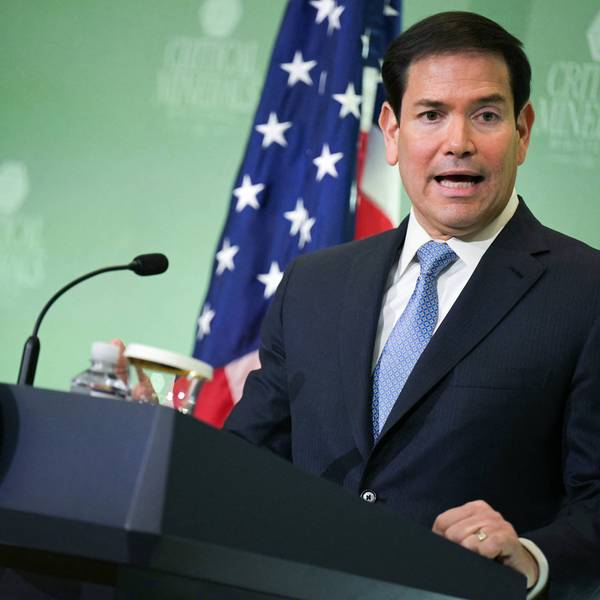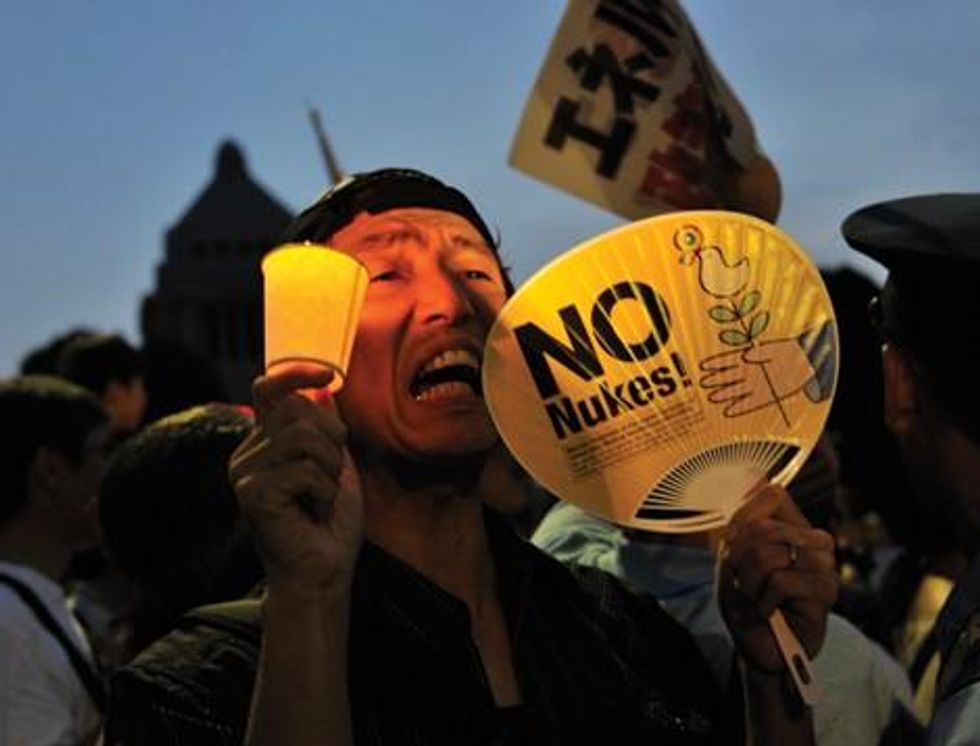With the second anniversary of the Fukushima Daiichi nuclear disaster this week, with North Korea having just threatened a "pre-emptive nuclear attack" against the United States and a U.S. senator saying this would result in "suicide" for North Korea, with Iran suspected of moving to build nuclear weapons, with the continuing spread of nuclear technology globally, the future looks precarious as to humankind and the atom.
Can humanity at this rate make it through the 21st Century?
We were only able to get through the 20th Century without a major nuclear weapons exchange without atomic doomsday by the skin of our teeth.
With more nations having the ability to construct nuclear weapons and any country with a nuclear power facility has the materiel and trained personnel to make nuclear weapons the likelihood of this luck running out is high.
The only realistic way to secure a future for the world without nuclear war is for the entire planet to become a nuclear-free zone. No nuclear weapons, no nuclear power.
Radical? Yes, but consider the even more radical alternative: a world where many nations will be able to construct nuclear weaponry because they possess nuclear power technology. The only real way to end the threat of nuclear weapons spreading throughout the world is to abolish nuclear weaponry and eliminate nuclear power. Consider the alternative: trying to keep using carrots and sticks, juggling on the road to inevitable nuclear catastrophe.
There are major regions of the Earth--the entireties of Africa and South America, the South Pacific and others--that are Nuclear-Weapon-Free Zones because of regional treaties recognized by the United Nations. In 1975, the UN General Assembly passed a resolution defining a Nuclear-Weapon Free Zone as an area with the "total absence of nuclear weapons" and establishing "an international system of verification and control...to guarantee compliance with the obligations deriving from [this] statute."
But if we are truly to have a world free of the horrific threat of nuclear weapons, the goal needs to be more than zones without them. A world free of the other side of the nuclear coinnuclear power is also necessary.
Any nuclear power facility can serve as a nuclear bomb factory.
That's how India got the atomic bomb in 1974. Canada supplied a reactor for "peaceful purposes" and the U.S. Atomic Energy Commission trained Indian engineers. And lo and behold, India had nuclear weapons.
Some will say putting the atomic genie back into the bottle is impossible. However, anything people have done other people can undo, especially if the reason is good. And the prospect of massive loss of life from nuclear destruction is the best of reasons.
There's a precedent in the outlawing of poison gas after World War I when its terrible impacts were tragically demonstrated. Chlorine gas, mustard gas, phosphene gas killed thousands on both sides of the conflict.
The Geneva Protocol of 1925 and the Chemicals Weapons Convention of 1933 outlawed chemical warfare and to a large degree the prohibition has held.
As for the connection between purportedly "peaceful" atomic energy and nuclear weapons, physicist Amory Lovins and attorney Hunter Lovins spell it out well in their book Energy/War: Breaking the Nuclear Link. "All nuclear fission technologies both use and produce fissionable materials that are or can be concentrated. Unavoidably latent in those technologies, therefore, is a potential for nuclear violence and coercion which may be exploited by governments, factions," they write.
"Little strategic material is needed to make a weapon of mass destruction. A Nagasaki-yield bomb can be made from a few kilograms of plutonium, a piece the size of a tennis ball," they note. A large nuclear power plant "annually produces hundreds of kilograms of plutonium; a large fast breeder reactor would contain thousands of kilograms; a large reprocessing plant may separate tens of thousands."
Civilian nuclear power technology, they emphasize, provides the way to make nuclear weapons, furnishing the materiel and personnel. Nuclear weapons non-proliferation, they say, requires "civil denuclearization."
As to claims of the energy generated by nuclear power plans being necessary, that's not true. Safe, clean, renewable energyled by solar and wind energy technologiesis available to provide all the power the world needs.
Among entities focusing on this is the organization Go 100% which on its website says: "Across the globein regions, cities, communities, businesses, and individual livespeople are proving that 100% renewable energy is not a fantasy for someday, but a reality today....The conventional fossil and nuclear energy system has led to multiple convergent existential crises, including climate change, air and water pollution, destruction of the oceans, the threat of mass extinction, water and food shortages, poverty, nuclear radiation problems, nuclear weapons proliferation, fuel depletion, and geopolitical problems." Go 100% provides details on the abundant research determining that the world can fully power itself with safe, clean, renewable energy, and what's happening in nations, particularly Germany, now moving toward that goal.
The dangers of nuclear power, in addition to permitting the development of nuclear weapons by any nation that has it, are immense.
As he retired from the Navy in 1982, Admiral Hyman Rickover, considered the "father" of the U.S. nuclear navy who was also in charge of building the first U.S. commercial nuclear power plant, in Shippingport, Pennsylvania, told a Congressional committee that inherent in nuclear power is radioactivity which made life impossible on Earth. Until a few billion years ago, Rickover told the panel, "it was impossible to have any life on Earth; that is, there was so much radiation on Earth you couldn't have any life, fish or anything." Then, gradually, "the amount of radiation on this planet and probably in the entire system reduced and made it possible for some form of life to begin."
"Now," he went on, by utilizing nuclear power, "we are creating something which nature tried to destroy to make life possible...Every time you produce radiation," a "horrible force" is unleashed, "in some cases for billions of years, and I think there the human race is going to wreck itself."
Having seen the light after decades of being deeply involved in nuclear technology, Rickover said: "I'm talking about humanity, the most important thing we could do is to start in having an international meeting where we first outlaw nuclear weapons to start off with, then we outlaw nuclear reactors, too."
As for nuclear weapons, he said: "The lesson of history is when a war starts, every nation will ultimately use whatever weapon has been available. That is the lesson learned time and again. Therefore, we must expect, if another war, a serious war breaks out, we will use nuclear energy in some form" and "we will probably destroy ourselves."
Planet Earth must be a nuclear-free zone without nuclear weapons, without nuclear power if the human race and other life forms are to survive.




